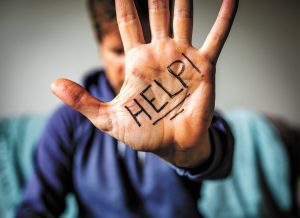 Life isn’t always easy. We all experience sadness, grief and other challenges — but sometimes the pain can feel like it’s too much to handle. When this happens, thoughts of suicide can become an unfortunate reality for some people.
Life isn’t always easy. We all experience sadness, grief and other challenges — but sometimes the pain can feel like it’s too much to handle. When this happens, thoughts of suicide can become an unfortunate reality for some people.
September is National Suicide Prevention Awareness Month. It’s important to know what warning signs to look for and ways to start feeling better.
These symptoms are signs it may be time to reach out for help:*
• Changes in behavior. Withdrawal from people or usual activities. Changes in eating or sleeping patterns. Any increase in drinking or smoking. Low or no energy. These changes could point to severe emotional distress.
• Mood swings. Feeling numb, hopeless, confused, forgetful, worried or scared means something isn’t quite right. Yelling, fighting and mood swings that cause relationship issues are all signs to talk with a doctor.
• Intrusive thoughts. If you or someone you love is hearing voices or believing things that aren’t true or are thinking about harming themselves or others, it’s important to get help right away.
Here are some ideas to boost resilience and improve mental well-being:**
• Try radical acceptance. Occasionally, nothing can stop something painful from happening. The only choice is to accept it.
• Laugh, often. Sometimes laughter truly is the best medicine. Look for the humor in a situation.
• Shift your mindset. Our brains have a negativity bias and often focus on the negative. When you realize you’re in that mode, just take a step back and think about the positive. Take a minute to list what you’re grateful for. You can look at this list when you notice you’re feeling down.
• Help other people. One of the best ways to feel better and forget our troubles is to help other people.
If you’re feeling any of the symptoms noted above, talk to your doctor about it so they can work with you to develop a treatment plan to help you feel your best. Remember, no matter what’s going on in your life or where you are, your life has meaning, and help is available.
You don’t need to be a Florida Blue member to turn to one of our Community Specialists at our Florida Blue Centers. They’re licensed social workers ready to help you and anyone in the community struggling with their mental health. They’ll answer your questions, listen to your concerns, and help you locate resources that may be available in your local community. Our centers also offer webinars and classes on topics like mental health — at no extra cost. Visit your local center or call 1-877-352-5830 or learn more at floridablue.com/center.
If you are struggling with suicidal thoughts, dial 988 to reach the National Suicide Prevention Lifeline.
Call your local agent
352-353-3399
Dell Richards
Florida Blue and Florida Blue Medicare are Independent Licensees of the Blue Cross and Blue Shield Association.
© 2022 Blue Cross Blue Shield of Florida, Inc., DBA Florida Blue. All Rights Reserved.
Y0011_ 110709_C 0822 C: 08/2022
*MentalHealth.gov. “What Is Mental Health?”
**National Alliance on Mental Illness. “Coronavirus: Building Mental
Health Resilience.”
 Central Florida Health and Wellness Magazine Health and Wellness Articles of the Villages
Central Florida Health and Wellness Magazine Health and Wellness Articles of the Villages



